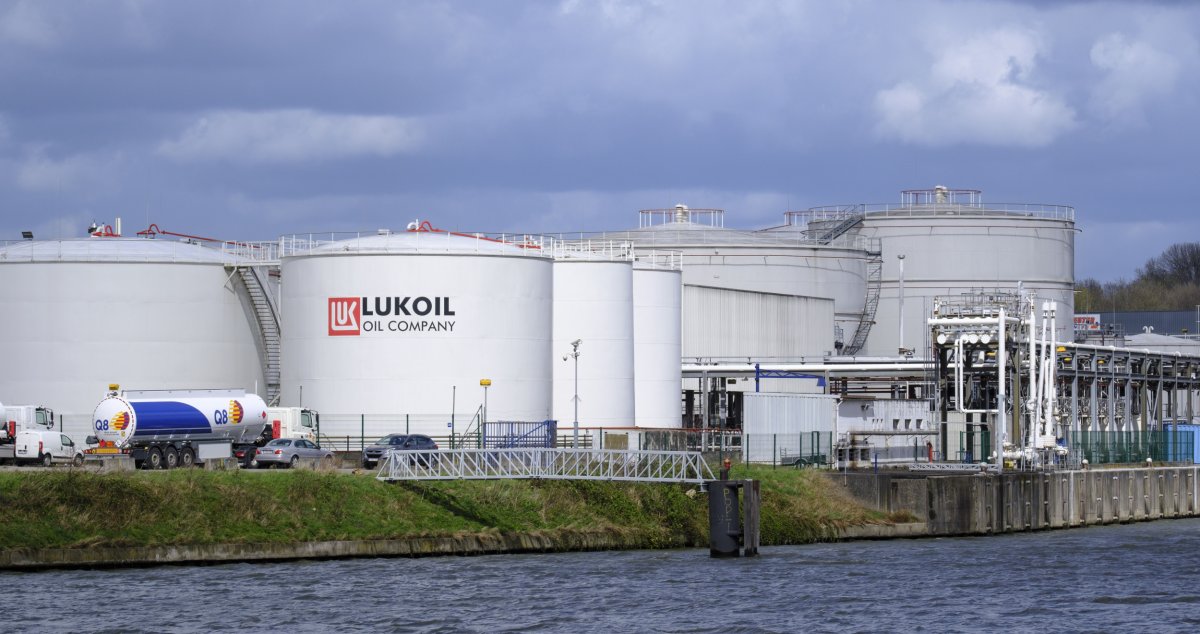Russia has reportedly assembled a fleet of tankers to circumvent a cap on the price of its oil that the U.S. has said will restrict Moscow's financing of its invasion of Ukraine.
However, shipping brokers believe that the move will not be enough for Russia to bypass sanctions, while one expert told Newsweek that Moscow's action "will only get them so far."
The price cap, which comes into force on Monday, will stop Western nations from paying more than $60 for a barrel of seaborne Russian oil and is aimed at constraining Vladimir Putin's financing of the war in Ukraine.
Proposed by the G7 in September, the price cap is intended to complement an EU-wide ban on Russian crude oil imported by sea, which also comes into force on Monday.
The move will cut Moscow off from much of the global tanker fleet because insurers, such as Lloyd's of London, will be barred from covering vessels carrying Russian oil unless it is sold under the price cap scheme.

U.S. Treasury Secretary Janet Yellen said on Friday the restriction would curb Russia's finances and "limit the revenues [Putin's] using to fund his brutal invasion"
However, shipping broker Braemar estimates that Russia has acquired more than 100 ships this year, through direct or indirect purchases, in what the Financial Times (FT) called a "shadow fleet." The vessels are generally 12 to 15 years old and would be expected to be scrapped in the next few years.
Moscow, which has previously said it would not deal with any country enforcing the cap, wants to use the new fleet to supply countries like India, China and Turkey, which have increased their supplies of oil in the last few months.
Energy consultancy Rystad estimates that Russia will still be short of 60 to 70 tankers, and will struggle in the early months of 2023, with seaborne exports expected to fall by about 200,000 barrels per day, the FT reported.
Craig Kennedy, a Russian oil expert at Harvard's Davis Center, told the publication: "You can come up with all sorts of clever schemes but there's just so much oil to move."
Abby Schrader, history professor at Franklin & Marshall College, Pennsylvania, said that the shadow fleet "will only get them so far."
"[Russia] will still have difficulty insuring their ships and they cannot manage to purchase enough of them to transport all of the crude oil that they will need to sell to keep their economy afloat," she told Newsweek.
"This is especially true since they will be transporting their oil further to places like India and China, rather than selling it to Europe," she said.
"Even if Russia manages to circumvent these price caps and sell its energy to Turkey, India, China, and others who are happy to purchase it, the sanctions that have already been imposed by the West will have a profound impact upon Russia."
Newsweek has contacted Russia's foreign ministry for comment.
Uncommon Knowledge
Newsweek is committed to challenging conventional wisdom and finding connections in the search for common ground.
Newsweek is committed to challenging conventional wisdom and finding connections in the search for common ground.
About the writer
Brendan Cole is a Newsweek Senior News Reporter based in London, UK. His focus is Russia and Ukraine, in particular ... Read more
To read how Newsweek uses AI as a newsroom tool, Click here.








